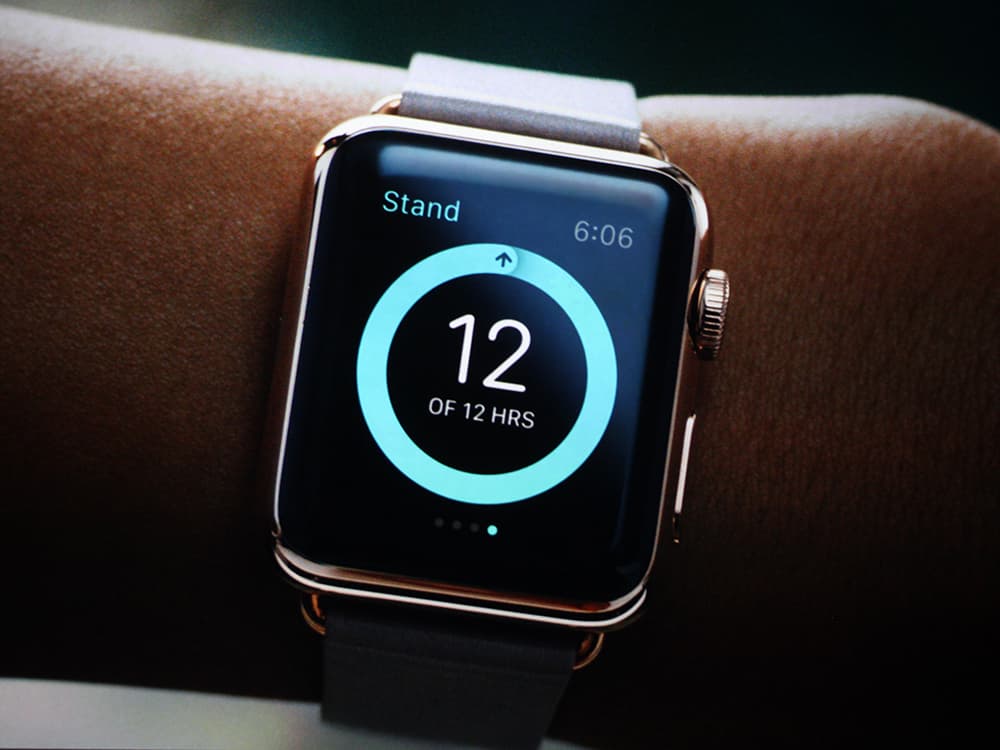
Apple hails health benefits of new watch
pharmafile | February 12, 2015 | News story | Medical Communications, Sales and Marketing | Apple, FDA, cook, healthkit, watch, wearables
Users of the upcoming Apple Watch will be prompted to be more active because ‘sitting is the new cancer’ according to Apple boss Tim Cook.
The California-based company’s chief executive told delegates at a recent Goldman Sachs Technology and Internet Conference that the device will “tap you on the wrist to remind you to get up and move”.
He explained that the gadget’s latest trick is to give you a small vibration encouraging the user to be more energetic and keep fit.
The long-awaited ‘smartwatch’ – set for release in April – will be able to calculate all kinds of data including heart rate, calories burned whilst also counting steps. Additionally it will send and receive messages, play music and make calls.
Cook explained that: “One of the biggest surprises for Apple Watch will be the breadth of what it can do.” Acknowledging that there are competitors already out there he said: “None have changed the way people live their lives.”
Apple has been pioneering its launch into healthcare for some time now, it was boosted late last year after new figures released by the Department of Health found that NHS England has spent over £1.2 million on its products since 2012.
Furthermore, a pilot programme for Apple’s mobile health platform HealthKit was rolled out across a number of US hospitals this month to help doctors monitor patients with chronic conditions.
The tech company also announced plans in early 2014 to manufacture a new health-monitoring device that will be built into a pair of headphones. The gadget will be able to track user activity during exercise and record various biometric data.
No better than smartphones?
New wearable technology benefits aside, recent work by the University of Pennsylvania investigated just how accurate the tools really are. One study got 14 participants to trial six wearables and six smartphones laden with gadgets to see how they compared.
Results found that the activity tracking systems of wearables are no better than that of smartphones. Nike’s Fuelband device was found to be the most inaccurate tracker followed by the Jawbone’s UP24, and Flex by Flitbit.
Any firms making exaggerated health claims of its wearable devices face scrutiny following new FDA guidelines on how the gadgets for medical purposes could be regulated. The rules will define what separates a healthcare device from a consumer offering.
The potential for this type of technology in the industry will only be realised if Apple and others engage effectively with consumers and healthcare authorities, and pharma will no doubt be following the developments closely.
Tom Robinson
Related Content

Roche’s Alecensa approved by FDA as lung cancer treatment
Roche has announced that the US Food and Drug Administration (FDA) has approved Alecensa (alectinib) …

GSK’s meningococcal vaccine candidate accepted for FDA review
GSK has announced that the US Food and Drug Administration (FDA) has accepted for review …

FDA grants ODD to Candel Therapeutics’ pancreatic cancer treatment
Candel Therapeutics has announced that the US Food and Drug Administration (FDA) has granted Orphan …







